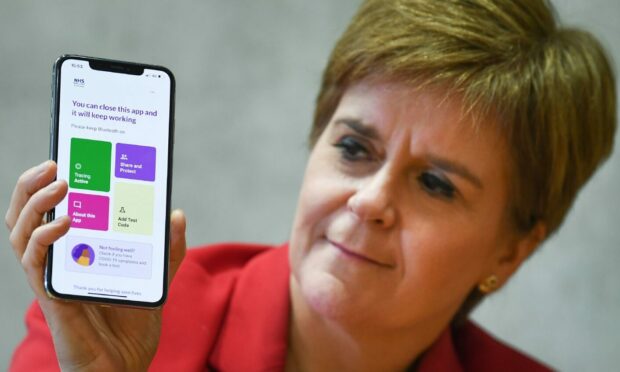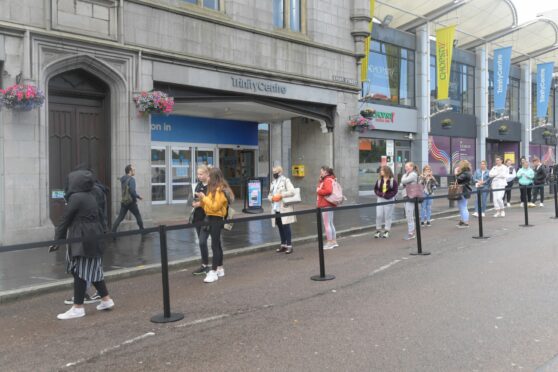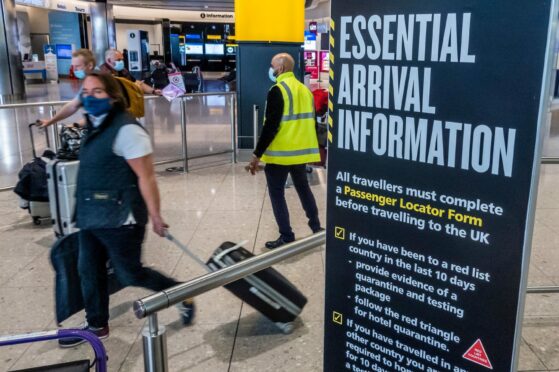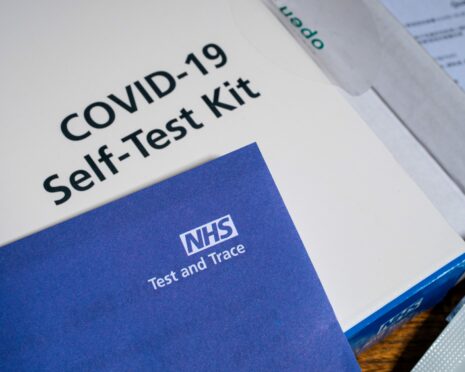Monday March 21 marks an important milestone in the coronavirus pandemic – the day when almost all legal restrictions end.
Scotland is moving away from two years of rules on contact tracing, testing and travel in an attempt to adapt to life after the virus.
Face masks are staying in place for two weeks after March 21 while the virus is still at high levels, but all other legal restrictions will be lifted.
Here’s all you need to know.
Contact tracing will end
We have become used to having to scan QR codes to check in at restaurants and bars, or fill in forms to leave our contact details in case someone in the same venue tests positive for coronavirus.
This requirement will end on March 21 – as will the use of the NHS track and trace app on mobile phones.
This applies to all venues that currently have contact tracing, not just hospitality businesses.
No more retail restrictions
Shops will no longer need to have any specific coronavirus mitigations from March 21.
Measures such as having separate entrances and exits, one-way systems, hand gel on arrival, floor markings to indicate social distancing, and screens to divide staff and customers at the tills will all be removed.
The legal requirements will be changed to strong guidance, so we might not see a dramatic change inside our favourite shops straight away.
No restrictions in places of worship
Similar to the restrictions in retail businesses, places of worship will no longer need to have special measures such as separate entrances and exits and screens.
People will still need to wear face masks, including while singing as part of a congregation.
Travelling to Scotland ‘back to normal’
March 21 will mark Scotland’s first full week of no international travel restrictions, as they are lifted in line with the rest of the UK at 4am on Friday March 18.
This means people coming back home to Scotland will no longer need to complete a passenger locator form or provide proof of their vaccination status.
Those who have no had their coronavirus vaccines will also no longer need to take a PCR test two days after arriving in Scotland.
Although these travel rules are changing, rules for travelling from Scotland to elsewhere may still require testing, proof of vaccination and locator forms – people will need to check the Foreign, Commonwealth and Development Office’s travel advice for the country they are visiting.
No social distancing in gyms
Although the restrictions on group activities and contact sports in gyms have already been dropped, all remaining restrictions in gyms will be lifted.
This includes one-way systems and social distancing in group gym classes.
What happens after March 21?
People will still have to wear face masks on public transport and in a number of indoor venues.
First Minister Nicola Sturgeon will make a decision on the future of wearing face masks on Tuesday March 29.
Testing will also be wound down. From April 18 people who have no symptoms will not be asked to do regular lateral flow tests.
Free lateral flow tests will also no longer be freely available to the general public after this date.
They will be offered only to people involved in clinical care, health and social care workers, and people who need to visit vulnerable care home residents or hospital inpatients.
The Scottish Government advises people with coronavirus symptoms to continue isolating and to get a PCR test until the end of April.



